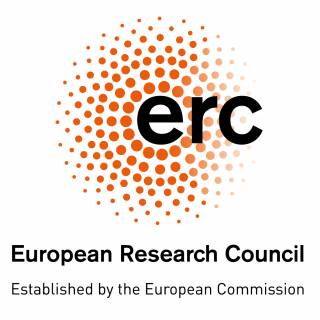 In this blog post, PhD candidate Valentine Berthet analyses the #MeTooEP campaign, sexual harassment and the European Parliament. The campaign argues that eradicating sexual harassment in the parliament is an urgent question for European democracy – Read here how European Parliament’s political groups respond.
In this blog post, PhD candidate Valentine Berthet analyses the #MeTooEP campaign, sexual harassment and the European Parliament. The campaign argues that eradicating sexual harassment in the parliament is an urgent question for European democracy – Read here how European Parliament’s political groups respond.
The European Parliament and its MEPs have recently come under scrutiny, and forced to reflect on their practices as a result of the #MeTooEP campaign led by members of the staff. The campaign activists consist of parliamentary assistants, policy advisors or trainees, who work daily, closely with the MEPs inside the institution (in Brussels, Strasbourg and Luxembourg). In 2017, they started to actively campaign against sexual harassment in the European Parliament.
Despite the existence of an anti-harassment Committee within the European Parliament since 2014 (the Advisory Committee dealing with harassment complaints concerning MEPs) and a resolution bringing forward concrete measures to combat sexual harassment and abuse in the EU adopted in 2017 (2017/2897 (RSP)), the people behind #MeTooEP worked hard to expose the extent of the problem within the parliament, the shortcomings of the existing parliamentary procedures and the political contestation around the issue.
The fact that there hasn’t been a single sexual harassment complaint filed to the anti-harassment Committee since its creation illustrates how complex is the issue in the European Parliament and indicates that some forms of resistance may exist. Highlighting the dysfunctioning of existing procedures and the resistance toward more measures to combat sexual harassment (such as a compulsory training for MEPs and staff) is one of #MeTooEP campaign objectives.
It all started in 2017 with a petition collecting 1,000 signatures, followed by a highly publicised press conference and the launch of their blog. The now famous blog gathers testimonies of sexism, sexual harassment and sexual assault that have occured within the European Parliament or have involved people working in it.
Surfing on the international #metoo wave, this blog has propelled the issue to the forefront of debates and to the center of the EU elections campaign.
It triggered discussions among MEPs as to what is the cause of sexual harassment and how to deal with it. While for some sexual harassment is a cultural and individual problem and should be solved at a personal level, others have described its structural dimensions and the gendered power hierarchies embedded in the culture of the institution. This brings us to question whether the European Parliament is a ‘normal workplace’ with strict rules against misbehaviours, harassment and a reliable complaint procedure. It is also important to ask whether MEPs perceive it as such, and if victims see chances of remedies.
The #MeTooEP pledge is the movement’s most recent tool and targets specifically the 2019 EP elections. It asks candidates to take the problem seriously during their mandate, if elected. With this pledge, #MeTooEP successfully brought up the issue of sexual harassment in the political campaign and framed it as an emergency for democracy. Many MEPs/candidates have already signed it. Yet, one can ask whether committing to this pledge can be seen as an easy, symbolic engagement with no real consequences or obligations involved.
With regards to political groups and their different approaches to gender equality and to the issue of sexual harassment, it is important to note that none of the current MEPs in the ECR group, the ENF group and the non-attached MEPs have signed it.
And, indeed, the #MeTooEP blog is keeping track of those who signed the pledge with the reported intention to name and shame those who haven’t. The groups’ leaders of EPP, S&D, ALDE, Greens/EFA and GUE/NGL have signed it (Manfred Weber for EPP, Udo Bullman for S&D, Guy Verhofstadt for ALDE, Ska Keller for Greens/EFA and Gabriele Zimmer for GUE/NGL). Antonio Tajani, current President of the EP, and Élisabeth Morin-Chartier, President of the anti-harassment Committee in the EP, have both signed the pledge despite their public disagreements with the staff-led #MeTooEP campaign.
In a recent podcast, Anni Saga Hirvelä, parliamentary assistant and one of #MeTooEP spokespersons, talked about the movement in the Parliament, how it’s been received by MEPs and whether they had experienced resistance. She explained that while all the eight political groups were positive toward the movement, those that have supported it the most are those from the centre to the left, while those on the right side have now taken distance from it.
Most recently, the staff-led movement has been included in a newspaper article ranking the Top ten events that marked the current EP. Only time will tell us if the next legislature will follow-up on this but, as for today, it seems that the #MeTooEP members are not going to stop anytime soon.
It also remains to be seen whether this initiative, essentially based in the political circle of the parliament, will extend to other low-paid and non-political employees, such as those working in cleaning and catering services. Indeed, most of them are employed locally in Brussels, Luxembourg or Strasbourg (three French-speaking cities). They do not necessarily know their rights and may find it difficult to access information given in English.
Valentine Berthet is a Ph.D student in EUGenDem, she studies the gendered violence policies of the European Parliament, including issues of sexual harassment.

